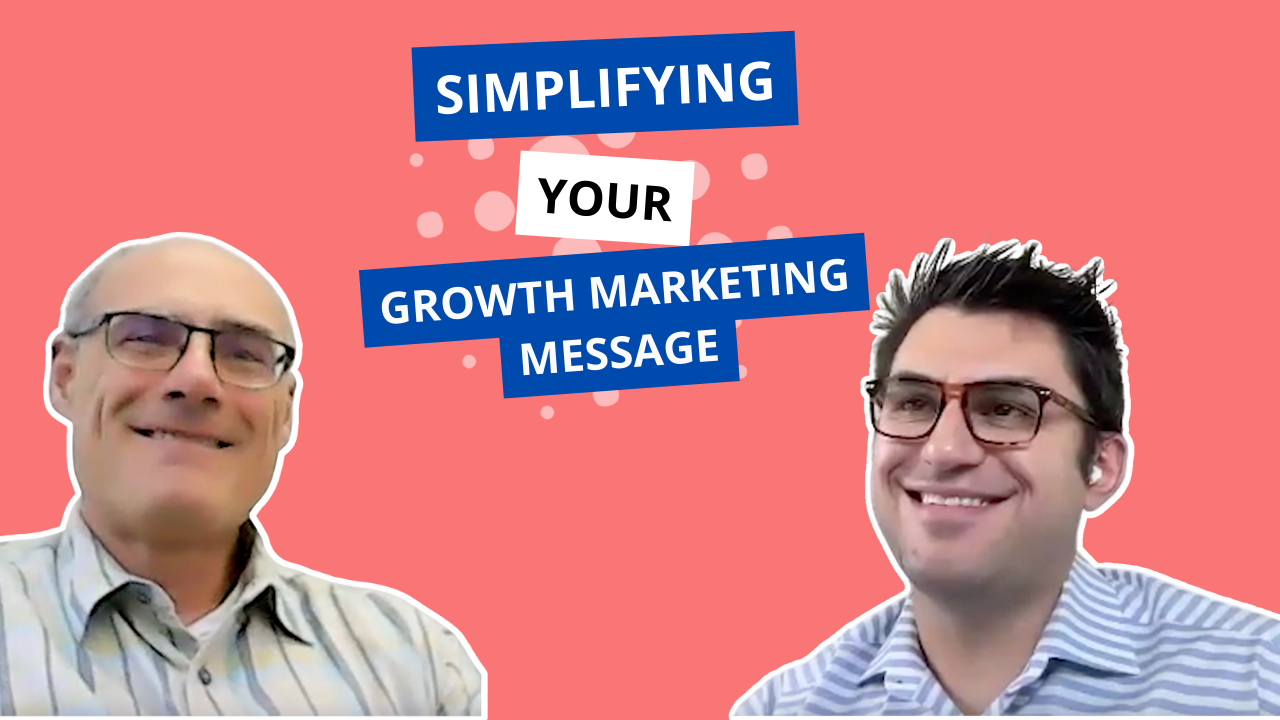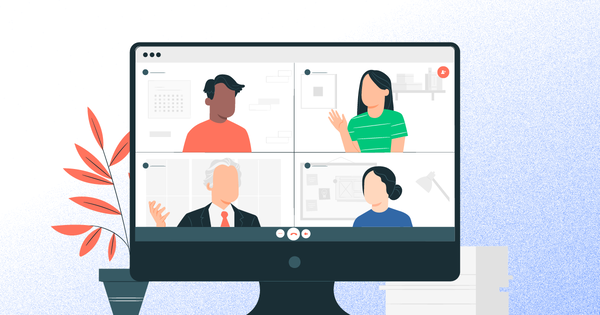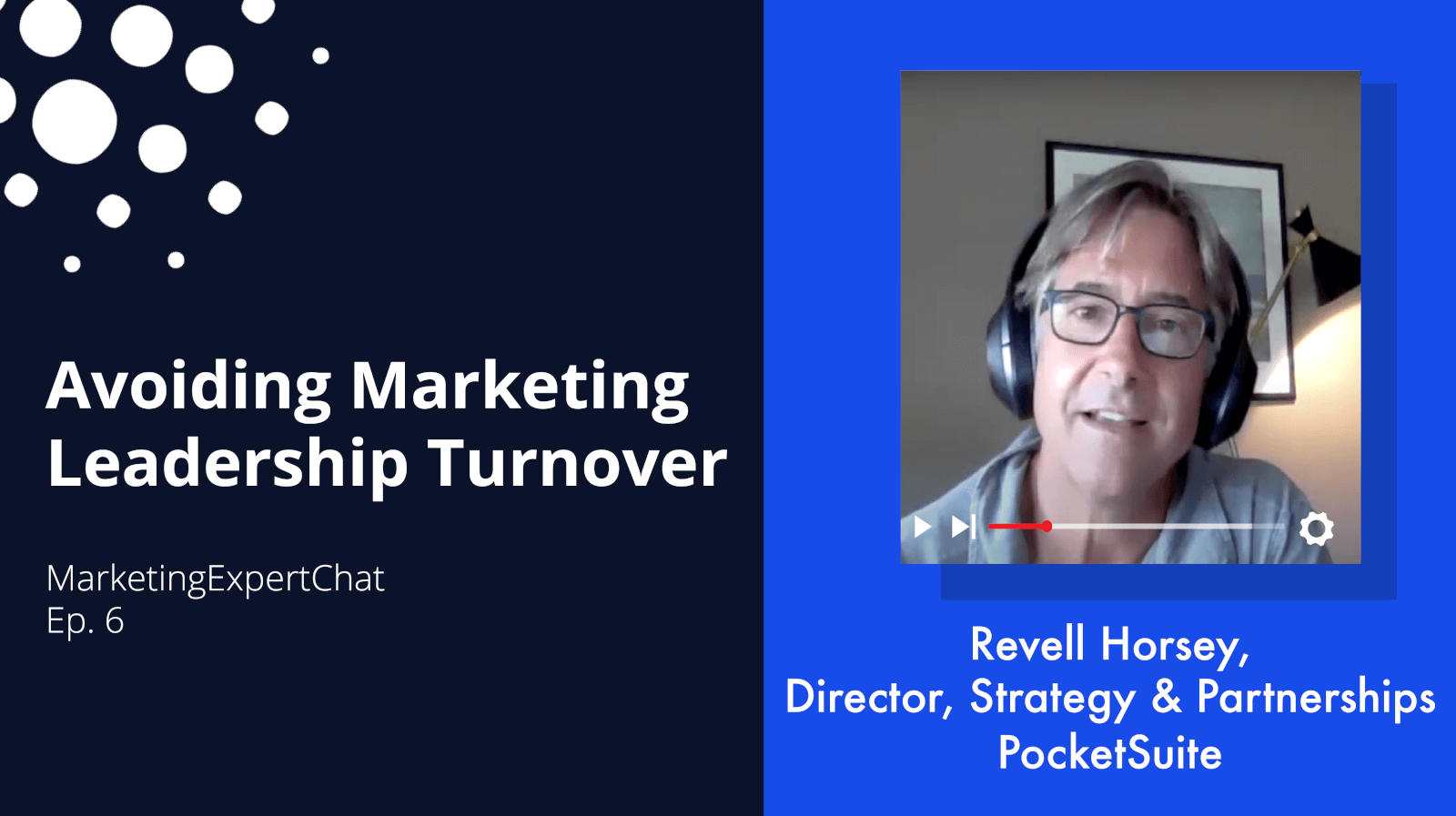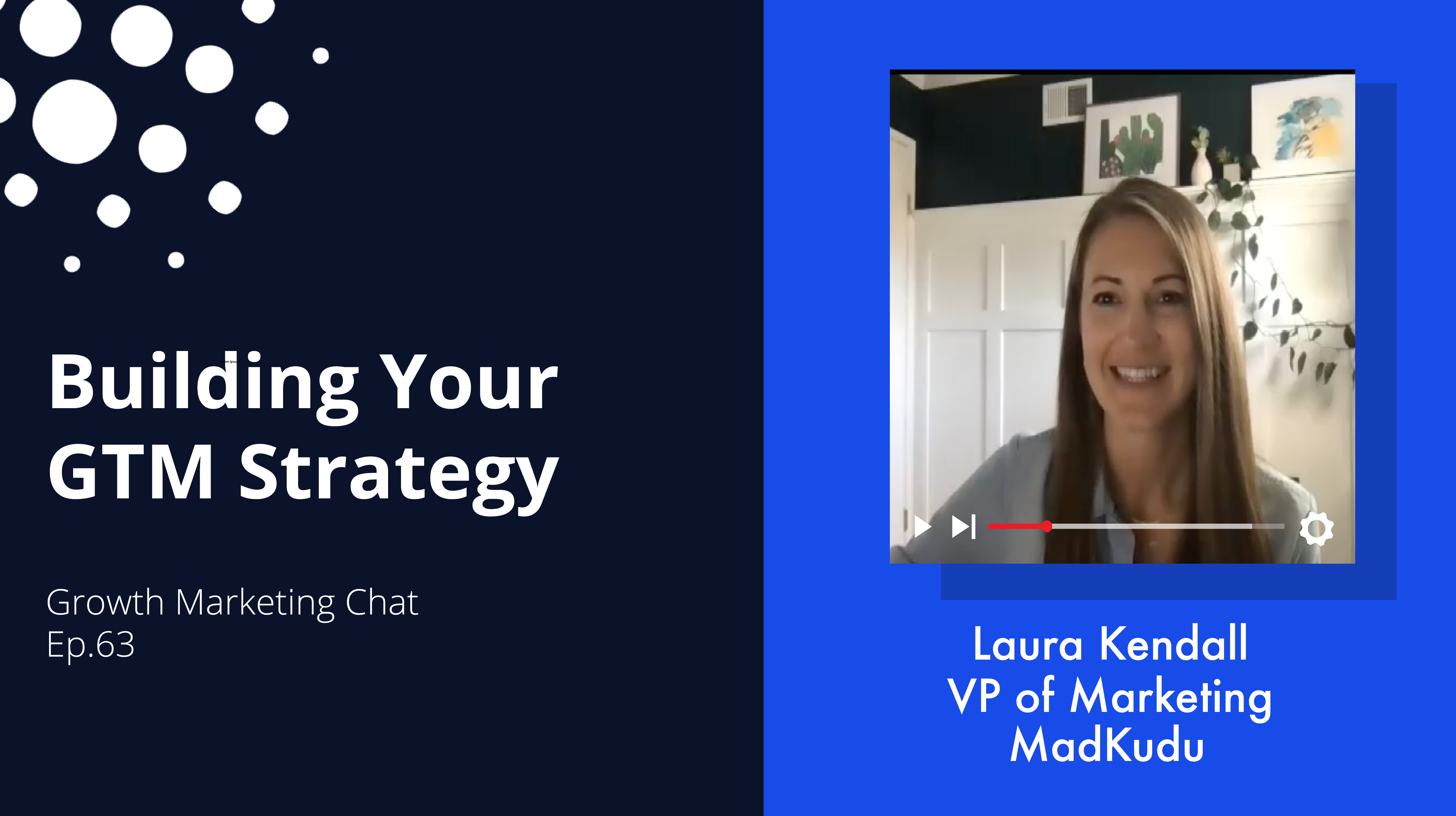Founders set the stage for their start-up business to succeed and can make a major impact on their company. Unfortunately, there are only 24 hours in a day, and one person can’t do everything!
That’s why it’s imperative that founders invest their time and energy wisely, ensuring they’re focusing on the business strategies and growth marketing tactics that will empower them to scale their business. This means hiring the right team that cohesively moves towards a shared mission.
It also means taking the time to know their product, know the audience and their environment, establish trust, as a leader and deal with the supply chain while delegating tasks to the best people for the job.
“I’ll say the first [lesson] is to...really know your people, know your team, and also make sure you have the right people. The right people in the right place.”
Where to Invest Your Time
In this week’s Growth Marketing Chat episode, Mohamed Hanini, founder and CEO of Koïos Intelligence, reveals what business leaders should focus on and where they should take a step back in order to strike a balance and grow their business.
He suggests spending time on:
-
Becoming an expert in what you’re trying to sell
-
Aligning with the environment of the clients
-
Optimizing the supply chain and focusing on distribution channels
-
Hiring and delegating to the right people
To scale their business and drive revenue, founders need to take the time to figure out where they make the time. By concentrating on the most relevant areas, leaders can make their businesses long-lasting and adaptable.
Watch the full interview to find out how founders can make the most of their time to strengthen their growth marketing and keep their businesses thriving.
Video Transcript:
CAROLINE: Hi, welcome to Growth Marketing Chat. Today I'm here with Mohamed Hanini. Mohamed is the founder and CEO of Koios Intelligence, and we're really excited to have him here today because he's building a really amazing product for insurance. Mohamed, thank you so much for being with us today.
MOHAMED: Yeah. Thank you, Caroline, for your invite, a pleasure to meet you and share with you our company, vision and advancements since we started.
CAROLINE: Awesome. So my favorite question to ask founders is, like how did you become an entrepreneur? What made you decide to like, take the leap and start your own company?
MOHAMED: Yeah, well, very good question. Long story short, it was clear for me that one day I will start a company and it's been, I don't know, since my young age. And I was really hesitating about when I should start it. And, you know, I will talk a lot about running because I'm a runner and you know, I'm gonna make it, maybe bring a little, I mean, little story, I started running... like maybe 15 years ago. I spent maybe seven years running by myself. No structure. Just exploring, you know, like just exploring many, many things. And, well, randomly one of my friends got injured and asked people on Facebook to get her beep, her ticket. And, I asked myself if I should go for a house marathon, and then I decided to go and... well, in 2012, I started my first half marathon and it went very well. So, at the end of the day, what I wanted to say is that really believe in training, and you could start very young, but you will make many mistakes, and especially in the tech environment and in our field, like an insurance field, and the financial services field.
I was always training myself to how can I say? Master enough, the financial services and the insurance and the insurance field as well. However, I needed also to have a kind of maturity in computer science. So, well, five years ago I felt enough ready and mature in those fields to start the company. And I said, I'm enough trained to succeed. And it was a little bit my story. So, I worked in the industry until 2012, while at PricewaterhouseCoopers , also in a pension fund as a quant. And I took, well, I was... I was comfortable in computer science, but not enough mature. And so I came back to kind of do a thesis, and like generating a random variable. And I learned a lot about technology, about computer science.
So my understanding and my knowledge kind of changed. And even the way I see things also completely changed. And so well, 2016 I said, okay, I understand the pain point of the industry as I spent enough time working on financial applications, and I don't know like I also understand, I mean, I also got the pain point in the technology part. One of the main issue also is to retain people. Obviously, to retain people, you have to offer them a challenge. It's not about, honestly, it's true that you know, the wage is important. However, people, work also for, challenges. And I was asking myself, what kind of project I could bring, like, could let's say tackle enough pain points and the industry. However, we need to also bring many challenges to our developers to really be excited and pick up every single day and say, okay, I would like to find a solution for this and that. And it is very, it's very easy to think about robots. Like a virtual assistant and as we can spend a hundreds of years, to improve a virtual assistant, and the best virtual assistant would be a human, but so even in 500 years, we're not gonna reach the human level, the intelligence of a human. So that's my story.
CAROLINE: Yeah. That's a big challenge. I love the story, but like training yourself and like getting ready and having, you know, having enough knowledge and experience in certain areas that you can really leverage them. I think this is the first time I hear a story like this, but I really love it.
MOHAMED: Well, I'm still as a young CEO, I'm still in the training and the learning phase, as, what I want to bring to my team that I'm, I want to avoid all the mistakes I faced in the industry. And knowing that I will make also mistakes, you know, it's like our parents, they think that the way they educated us, is let's say better than the than the way they were educated. However, they made mistakes. So, we'll make mistakes. But the idea is to be aware that, okay, we're gonna make mistakes. And that's what I tell my team. Let's say your colleague, cause I prefer to bring that angle as, and then the scrum meetings, and you really get involved in the technical side, not to micromanage my team, just to make sure that we are aligned about the direction we'll take However, what I always say and repeat, I will make mistakes, but I think that I would make less mistakes than you do. That's why I'm leading the company. And as I know very well the company, the culture, the product and, you know, being trained for, you know, for hours and hours and, well, it's obvious that I'm the one who spent more, you know, more... Yeah. Like, in the company.
CAROLINE: Yeah. So something that's been interesting to me is where do founders decide to spend their time, especially at the beginning, as you know, you're growing your team and building your product, and you put a lot of time and effort, spending time with your team and spending time on the product. Versus being more on the, and this is something that happens quite often, right? Usually, founders are either like on the sales side and like participating in panels and stuff like that is more on the product side. And so I'd love to hear about, like, why did you think it was important to be really involved with your team, with it, really involved with the product to build your company. And why did you make this decision?
MOHAMED: Yes, it's very good question, and I was even asking myself sometimes, should I resign from a CEO and be more focused like at CTO, like clearly, I'm like the CTO of the company, you know, however, I'm also the decision-maker. What I notice is that even our clients at the end of the day, I mean, they have to, first of all, be convinced about the, you know, about the product and what, like what they need, they need the product that streamlines their processes. Right?
They need someone who knows very well, the product that he's selling. Right? I spent time convincing our first partners to join, our journey. You know, the insurance industry is so well, they know each other, they talk and they saw that what we built is really, how can I say, we created a kind of hedge between what we built and what the other chat bot players are selling. And, clearly that helped us to have more partners. And I'm pretty sure with the future announcement they will join, so obviously we have a sales team about seven people who are like reaching clients and I'm available if they need my help to explain the product or clarify some aspects of our clients, they care about, they're aware about the data, like customer data privacy, they're aware about how would we integrate to their environment.
So of course my role is to think about the channels, you know, how could we fit with the insurance environment. And clearly, if I spend my time pitching and, you know, in the panels, I couldn't align our supply chain with the environment of our clients. So today we are fully integrated applied system.So today we could provide, any premium, of like any PNC careers. So impact, path core, that are unique, they're... Why? So we partnered with an applied system, and that helped us to kind of, build a bridge between our product and the industry. So, now we are enabled to display any premium, any career premium to customers. That's the challenge, to be fully integrated with the market. So, I helped my sales team if they have any pain points, or if they need more explanation, to convince a partner, I'm here to help. However, my focus is how to really, optimize the supply chain and also think about different distribution channels and align our supply chain with those distribution channels. As if we only count on people and the, you know, on individual to sell the product,, we'll never be able to scale. And that's...That was my thoughts.
CAROLINE: Awesome. Great. Well, I guess I have, my last question is, so as you, as you went through this journey, right? What are some of the most valuable lessons you've learned, as a CEO?
MOHAMED: Many and many valuable lessons. I'll say the first one is to really, know your people, know your team and also make sure that you have the right people. The right people in the right place. This is the most important lesson. You start a company, you don't have enough resources to make properly inter human research, like interviews and so on. And, that was my lesson. I'm very happy that we built a real seat, you know, like a founder team, I can say. Not only having a CEO, founder CEO, and with a detached team. So we are now a founder team, and I'm very proud of my team that we have reached this level because of them, and that's what I always say. Every single member is important. So we are all like running in the same direction and we really, yeah. We really need to be aligned and... yeah.
CAROLINE: The team is everything. And, you know, it sounds cliché because everybody says it, but it's actually really hard to spend the time to, like you said, to spend the time. And also sometimes like, you need resources today. Alright. Any it's hard to be okay, spending the time and waiting for the right person to like, to hire. Right? And sometimes it's hard to be patient enough, but, it's life-changing, it really makes the, it makes a world of a difference to have the right people on your team.
MOHAMED: Yeah. Yeah. It's totally true. We really built like a multidisciplinary team, very dynamic. It's like, we are like enjoying our journey. We are having fun, especially, we face the pandemic, the remote work. I mean, for me, it's very clear that we have to be flexible and then now we want to have a hybrid formula, we believe that onsite work is also important and having everyone, I'll say opinion in person is very, is very important. As we are also designing the product, we're thinking together how, yeah. How could we improve ourselves, improve our processes and, how could we improve ourselves.
CAROLINE: Yeah. All right. What a moment. Thank you so much for spending the time today and sharing your story. That was great. I really appreciate it. And I think our listener will love it too.
MOHAMED: Thank you Caroline. Thank you very much for that.





